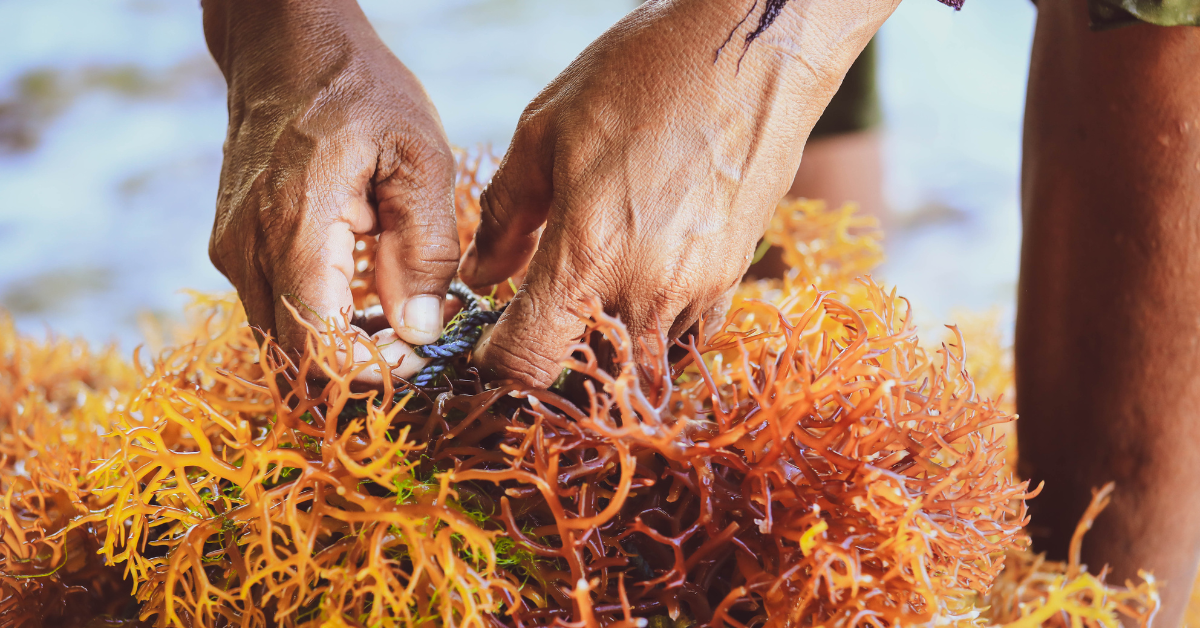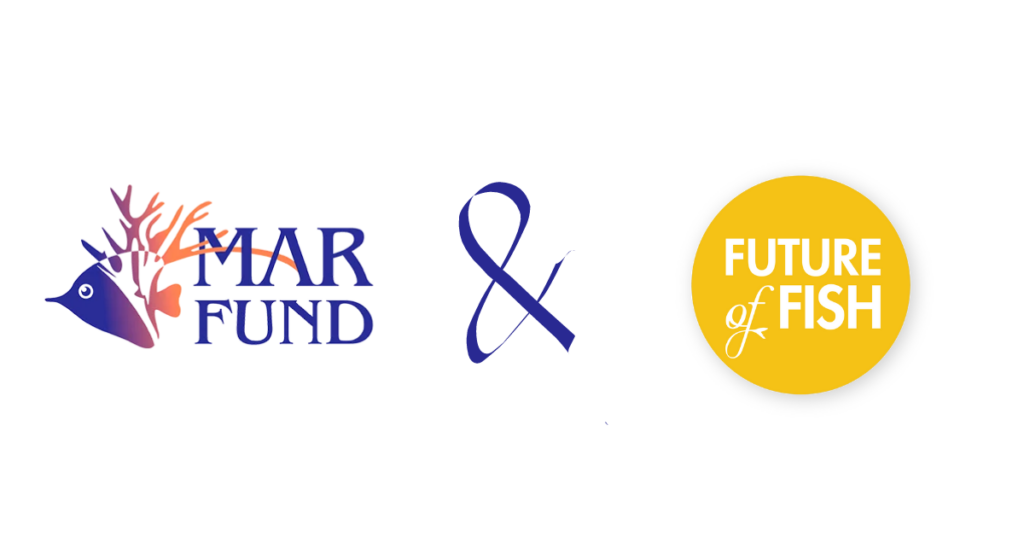
Future of Fish recently partnered with the Mesoamerican Reef Fund (MAR Fund) to update business models and suggest investment strategies for the Belizean seaweed industry. Our team connected with the team at MAR Fund to discuss the project a little more, and understand how the organizations work supports each other’s mission.
MAR Fund
Question — MAR Fund’s mission is to drive regional funding and partnerships for the conservation, restoration, and sustainable use of the Mesoamerican Reef (MAR). Tell us about your focus in Belize.
Answer — MAR Fund operates a country-focused program called the Belize Marine Fund, established to promote the sustainable use and effective management of priority marine ecosystems in Belize, particularly the Belize Barrier Reef Complex and associated ecosystems. The main areas of focus include improving the management effectiveness of marine protected areas (MPAs) across the country, reducing pressures on marine resources, and effectively marketing Belize’s reef at national and international levels. The overarching goal is to catalyze a positive impact on marine resources management in Belize.
A key aspect of this focus involves investing in MPA co-management partners to enhance the effective management and financial sustainability of marine protected areas. Additionally, strategic efforts are underway to improve the enabling environment for investment in the Belize reef.
Why did you choose to work with Future of Fish? What unique value did Future of Fish bring to this project?
We decided to collaborate with Future of Fish due to our shared mission of empowering thriving, resilient ocean communities through innovation and investment. This partnership offered a valuable opportunity to align our efforts towards a common goal: the development of Seaweed Farming in Belize as a restorative solution for the Mesoamerican Reef and the reef-dependent communities. Seaweed farming holds the potential to alleviate pressure on reef resources while promoting various ecosystem-restorative functions and diversifying income for communities. Future of Fish had previously developed a business plan for medium-sized seaweed farms in Belize in collaboration with The Nature Conservancy (TNC) in 2018. However, given new developments in the sector, the study required updating.
Tell us about the project and its importance to your work?
MAR+Invest, a program of MAR Fund and financed by the Global Fund for Coral Reefs (GFCR), has supported the evaluation of a business plan aimed at enhancing the seaweed mariculture industry in Belize. The study includes an assessment of the potential market for seaweed-based products in Belize and evaluates the production costs of a small-scale seaweed farm cultivating two species. This project holds significant importance for MAR+Invest as it aligns with the mission to drive sustainable development and support market solutions that contribute positively to the health and resilience of coral reefs in the MAR region.
Anything else you would like to add.
The development of this updated seaweed study was made possible thanks to the close collaboration between Future of Fish, The Nature Conservancy Belize, and local seaweed farmers. Their expertise in this field significantly contributed to advancing the project by providing invaluable insights and resources.
Future of Fish
Why did you choose to partner with MAR Fund?
Future of Fish (FoF) decided to partner with MAR Fund due to our shared vision and mission to develop systemic nature-based solutions to address socio economic and environmental challenges through the conservation, restoration and sustainable use of the Mesoamerican Reef. In particular, FoF is excited to join efforts with MAR Fund and local partners contributing to the development of the seaweed mariculture sector in Belize. Seaweed mariculture constitutes an important alternative economic activity for coastal fishing communities, especially women and youth, as it is inclusive, sustainable and meets a growing national and international demand for healthy and low carbon food, cosmetics and health products. Moreover, seaweed mariculture restoration, biodiversity conservation and blue carbon sinking capacities are Belize’s key allies in the country’s effort to adapt and mitigate climate change while contributing to meet its climate and biodiversity conservation international commitments.
“Our experience and learnings in business modelling for the seaweed industry in Belize could serve as a blueprint to adapt and replicate in other countries in the Mesoamerican region and beyond.” — Luis Miguel Ormeno, Senior Finance Specialist, Future of Fish
How does this project contribute to your mission?
FoF and MAR Fund envision the development of the seaweed mariculture industry in Belize as a means to empower thriving, resilient ocean communities and support the transition into a blue and regenerative economy driven by strong collaboration among stakeholders, innovation and investment.
What problem does this seek to address? Why is it important?
Declining fishing stocks are a consequence of overfishing, environmental degradation and climate change inflicting severe consequences among coastal communities and the economy. Seaweed mariculture has the capacity to become a profitable economic industry that capitalizes on Belize’s local ocean knowledge generating revenues and employment opportunities at the production, processing and commercialization levels while supporting ocean restoration, biodiversity conservation and GHG reductions.

If you have a seaweed industry project that could benefit from Future of Fish’s expertise in business modelling and finance, feel free to drop us a line at info@futureoffish.org.
Published May 10, 2024




